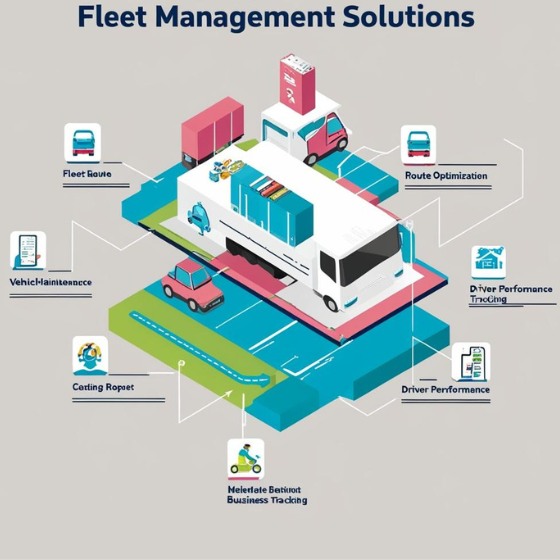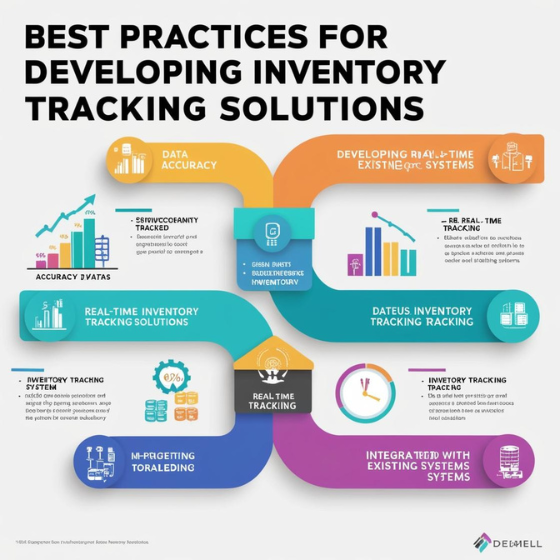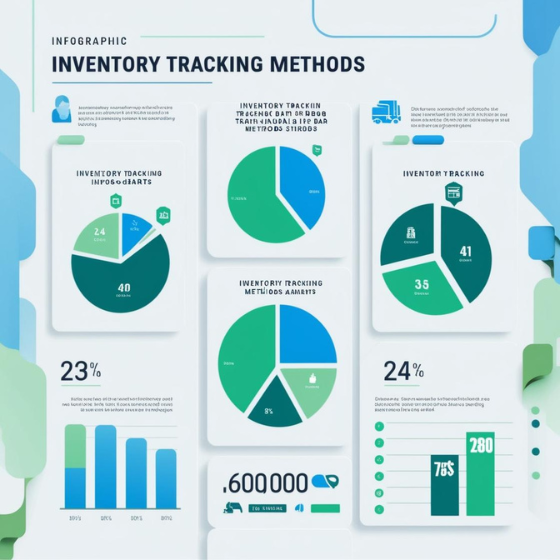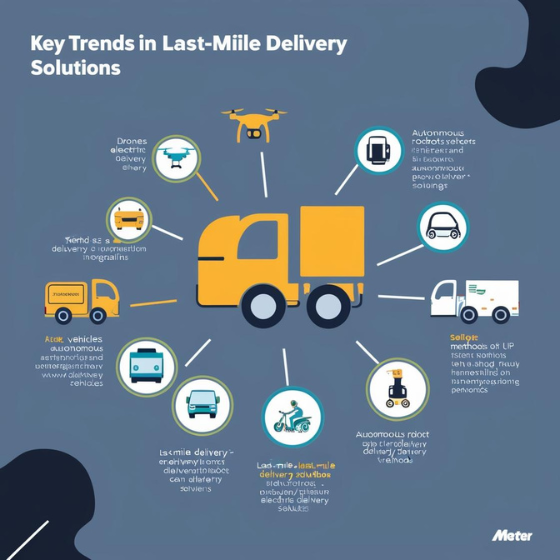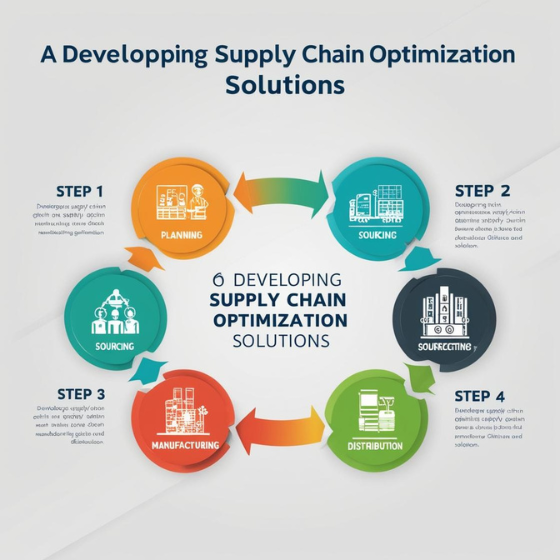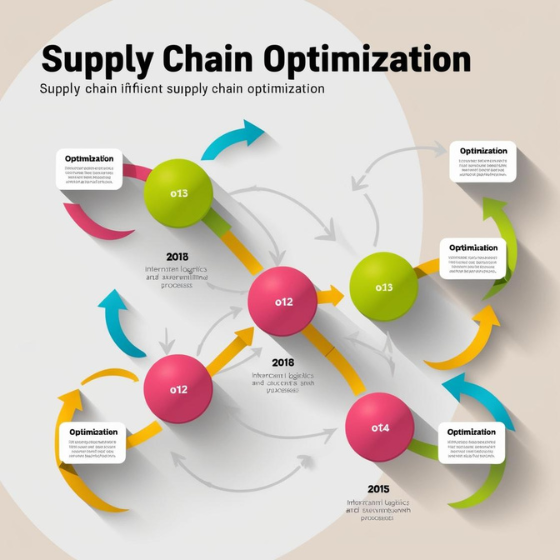Developing Efficient Fleet Management Solutions
“Did you know that companies with efficient fleet management can reduce fuel costs by up to 15% and vehicle downtime by 30%?”
In an era where logistics, delivery, and transportation drive industries forward, fleet management plays a pivotal role in maintaining operational efficiency. Whether you’re running a logistics company, managing a delivery fleet, or overseeing service vehicles, ensuring that your fleet operates smoothly can make or break your business.
This blog delves into the nuances of developing efficient fleet management solutions, offering actionable insights, best practices, and strategies that businesses can adopt to optimize operations. By the end, you’ll have a clear roadmap for improving fleet efficiency while exploring how Sodio’s services can help you achieve your goals.
What Are Fleet Management Solutions?
Fleet management solutions refer to systems and tools designed to oversee and optimize the performance, maintenance, and utilization of a fleet of vehicles. These solutions integrate technology such as GPS tracking, telematics, and data analytics to enhance fleet performance while reducing costs.
Why Are Efficient Fleet Management Solutions Essential?
- Cost Reduction: Lower fuel expenses, maintenance costs, and insurance premiums.
- Improved Safety: Monitor driver behavior and reduce accident risks.
- Environmental Impact: Cut down on emissions through optimized routes and better vehicle performance.
- Regulatory Compliance: Simplify adherence to transportation and safety regulations.
With businesses increasingly reliant on fleets, developing efficient fleet management solutions isn’t just a strategic move—it’s a necessity for long-term success.
Key Challenges in Fleet Management
Before diving into solutions, it’s essential to understand the obstacles businesses face when managing fleets.
1. High Operational Costs
Fuel prices, repairs, and maintenance often account for the largest portion of fleet expenses. Without proper management, these costs can spiral out of control.
2. Inefficient Route Planning
Poor route optimization leads to wasted fuel, delayed deliveries, and unhappy customers.
3. Lack of Real-Time Data
Without access to real-time data, fleet managers struggle to make informed decisions, resulting in inefficiencies and missed opportunities.
4. Compliance Risks
Failing to adhere to safety and transportation regulations can lead to hefty fines and operational disruptions.
Addressing these challenges is the first step toward developing efficient fleet management solutions tailored to your business needs.
How to Develop Efficient Fleet Management Solutions
1. Leverage Fleet Management Software
Fleet management software is at the heart of efficient operations. These tools offer real-time insights into vehicle performance, driver behavior, and maintenance schedules.
Key Features to Look For:
- GPS tracking for real-time location updates.
- Predictive maintenance alerts to prevent breakdowns.
- Data analytics for fuel efficiency and cost optimization.
Pro Tip: Explore Sodio’s custom software development services to create a tailored fleet management platform that meets your unique requirements.
2. Optimize Maintenance with IoT and Predictive Analytics
Regular vehicle maintenance is crucial for fleet efficiency, but predictive analytics takes it a step further. By leveraging IoT sensors, businesses can detect potential issues before they escalate.
Steps to Implement Predictive Maintenance:
- Equip vehicles with IoT sensors to monitor performance.
- Analyze data for early warning signs of wear and tear.
- Schedule repairs proactively to avoid downtime.
3. Focus on Route Optimization
Inefficient routes are a significant drain on resources. Advanced route planning tools can help businesses save time, reduce fuel costs, and improve customer satisfaction.
Best Practices for Route Optimization:
- Use GPS and AI-powered tools to find the shortest, most efficient routes.
- Factor in real-time traffic and weather conditions.
- Consolidate deliveries to minimize trips.
Sodio’s mobile app development services can help you integrate route optimization features into your fleet management app.
4. Monitor and Improve Driver Performance
Drivers are at the forefront of fleet operations, and their behavior significantly impacts efficiency and safety. Telematics systems can track driver performance and offer actionable insights.
Metrics to Monitor:
- Speeding, harsh braking, and idling.
- Fuel consumption patterns.
- Compliance with safety protocols.
Pro Tip: Use driver scorecards to incentivize good behavior and provide training for improvement.
5. Transition to Sustainable Practices
Sustainability is no longer optional; it’s a business imperative. Transitioning to electric or hybrid vehicles can help businesses reduce fuel costs and align with environmental goals.
Benefits of Going Green:
- Lower carbon footprint.
- Reduced dependency on fossil fuels.
- Access to government incentives for eco-friendly practices.
Case Study: Transforming Fleet Efficiency with Technology
The Challenge:
A mid-sized logistics company faced rising operational costs, inefficient routes, and frequent vehicle breakdowns, resulting in delayed deliveries and customer dissatisfaction.
The Solution:
The company partnered with Sodio to develop a custom fleet management system featuring:
- GPS tracking and real-time route optimization.
- Predictive maintenance alerts using IoT sensors.
- Driver monitoring and performance scorecards.
The Results:
- 15% reduction in fuel costs.
- 20% improvement in on-time deliveries.
- 30% decrease in vehicle downtime.
This case study underscores the value of developing efficient fleet management solutions to achieve measurable business outcomes.
Future Trends in Fleet Management
As technology evolves, the fleet management industry is poised for transformation. Here’s a glimpse into what the future holds:
- AI-Powered Analytics: Advanced AI tools will offer deeper insights into fleet performance and cost optimization.
- Autonomous Vehicles: Self-driving fleets will redefine logistics and transportation.
- Blockchain Technology: Transparent, tamper-proof records will enhance compliance and streamline operations.
By staying ahead of these trends, businesses can maintain a competitive edge and continue optimizing their fleet operations.
Conclusion: Drive Success with Sodio’s Fleet Management Solutions
Efficient fleet management is more than just a cost-saving measure—it’s a strategic advantage in today’s competitive landscape. By leveraging advanced technology, optimizing routes, and adopting sustainable practices, businesses can transform their fleet operations and drive long-term success.
Ready to take the next step? Sodio’s expertise in custom software development can help you build a fleet management system tailored to your unique needs.
Contact us today to learn more about how Sodio can help your business achieve its fleet management goals.
